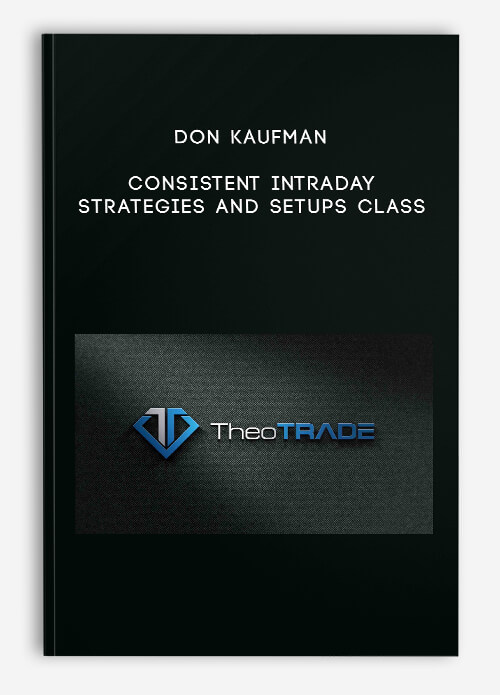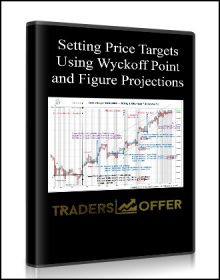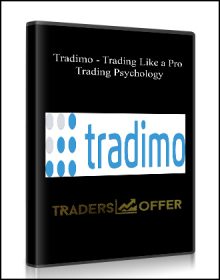
Don Kaufman – Consistent Intraday Strategies and Setups Class
Description
LEARN HOW TO GENERATE CONSISTENT RETURNS WITH THIS INTRADAY CURRICULUM IN OUR ONLINE CLASS YOU WILL LEARN:
How to create intraday trades that put probabilities on your side so you always minimize your risk and maximize your returns
How to analyze the markets so you can read and anticipate the market’s direction
The options setups with detailed step by step entry and exit criteria that are perfect for intraday traders
How the market provides predicable or manipulated ranges for every stock, ETF, or index that you can use to generate daily returns
The little known market insights into what drives markets to move in one direction so you can get on the right side of the trade
The Tools and Strategies for analyzing any market condition so you can trade with confidence every day
How to minimize your risk and maximize your returns like never before with specific insights beyond ANY classes available
NYWHERE!
How you can generate returns Intraday with a small account or retirement account with minimal options experience
Which stocks and indexes make the best candidates for intraday trading
What strikes and what expiration period to select to give you the highest probability of Intraday success
When to open and when is the best time to close your Intraday trades
What market correlations to watch intraday so you can manage your swing or long term investments
Why intraday trading does NOT mean you need to be glued to your screen all day!
What the best times and set ups are for intraday trading perfect for traders who can’t watch the markets all day!
Recorded one day of the live trading room so you can see the intraday strategies and setups in a real market environment
Stock trading course: Learn about Stock trading
A stock trader or equity trader or share trader is a person or company involved in trading equity securities.
Stock traders may be an agent, hedger, arbitrageur, speculator, stockbroker.
Such equity trading in large publicly traded companies may be through a stock exchange.
Stock shares in smaller public companies may be bought and sold in over-the-counter (OTC) markets.
Stock traders can trade on their own account, called proprietary trading, or through an agent authorized to buy and sell on the owner’s behalf.
Trading through an agent is usually through a stockbroker. Agents are paid a commission for performing the trade.
Major stock exchanges have market makers who help limit price variation (volatility) by buying and selling a particular company’s shares on their own behalf and also on behalf of other clients.












![Mark Douglas – Trading Psychology [4 mp3]](https://vincourse.info/wp-content/uploads/2020/01/Mark-Douglas-–-Trading-Psychology-4-mp3-350x350.jpg)
Lord –
This is Digital Download service, the course is available at Coursecui.com and Email download delivery.